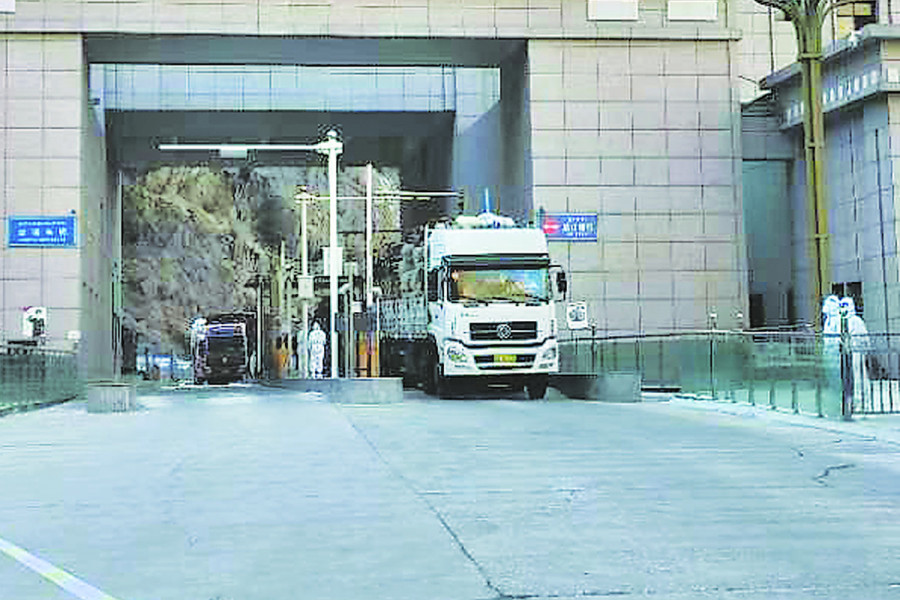
The demand for Nepali products has started to pick up in the Chinese market as Beijing has reopened two-way trade from the Rasuwagadhi-Kerung port, which was shut since the start of the Covid pandemic.
Nepali traders have been exporting goods such as flour, turmeric, chilly, bamboo stool, grass broom, handicrafts, cosmetics, noodles and among others to Tibet via Rasuwagadhi.
According to the local traders, the Tibetans started placing orders for the goods via telephone calls with their Nepali counterparts immediately after the border was opened for export.
“The Chinese people love Nepali products,” said Mukunda Poudel, a local trader from Kalika Rural Municipality. “The Chinese traders have already booked two containers of bamboo stool made in Nepal.”
Poudel said he has started collecting the items amid the soaring demand from Tibet.
Around 150 Nepali traders along with Poudel have been exporting goods to China through the Rasuwagadhi border point.
The goods exported from Nepal are mainly sold in Tibetan cities like Lhasa, Shigatse and Amdo.
According to the Rasuwa Customs Office, since the resumption of export, nearly a dozen containers loaded with Nepali produce have crossed the border till Monday this week.
“The goods worth Rs13.11 million have been exported as of Monday,” said Narayan Prasad Bhandari, the chief customs officer.
The import and export via Rasuwagadhi were affected from January 2020 initially due to the snowfall and Lhosar, a local festival and the New year of Tibetan.
However, the operation got further impeded by the Covid-19 pandemic. The border was shut for five-and-half months due to the lockdown.
The import recommenced from July 6, 2020, but the export was still held back.
The local traders have been troubled by frequent disturbances.
At present, 14 containers have been importing goods to Nepal daily via the custom point.
But still, Beijing has not allowed the movement of people from the border point.
The traders had faced trouble in exporting prior to January 29, 2020, as well. The Chinese officials had obstructed the import of goods citing the cause of language barriers and weather problems.
According to the traders, around 40 tonnes of turmeric and chilly used to be exported every month when the border point was functioning well. Rasuwagadhi is the oldest trading route between Nepal and China.
According to the Department of Customs, imports from China in fiscal 2020-21 rose 28.58 percent year-on-year to Rs233.92 billion.
Before Covid in fiscal 2018-19, imports amounted to Rs205.51 billion. In 2017-18, imports were valued at Rs159.98 billion, up from Rs129.87 billion in fiscal 2016-17.
Nepal suffers a huge deficit in its trade with China. If Nepal imported Rs233.92 billion worth of goods from the northern neighbour in 2020-21, its exports across the Himalaya were valued at a mere Rs1 billion.
This translates into a trade deficit of Rs232.90 billion, which accounted for 14 percent of Nepal’s total trade deficit in fiscal 2020-21.
Business with China started booming after 2015 when the Nepal government removed export duty.
In fiscal 2015-16 when Nepal was hit by a devastating earthquake, imports from China stood at Rs116.11 billion, up from Rs99.28 billion in 2014-15.
In the last seven years, imports from China have increased three-fold.
It normally takes two months for goods ordered from China to arrive in Nepal by sea freight, and two weeks by container truck overland across the northern border.












